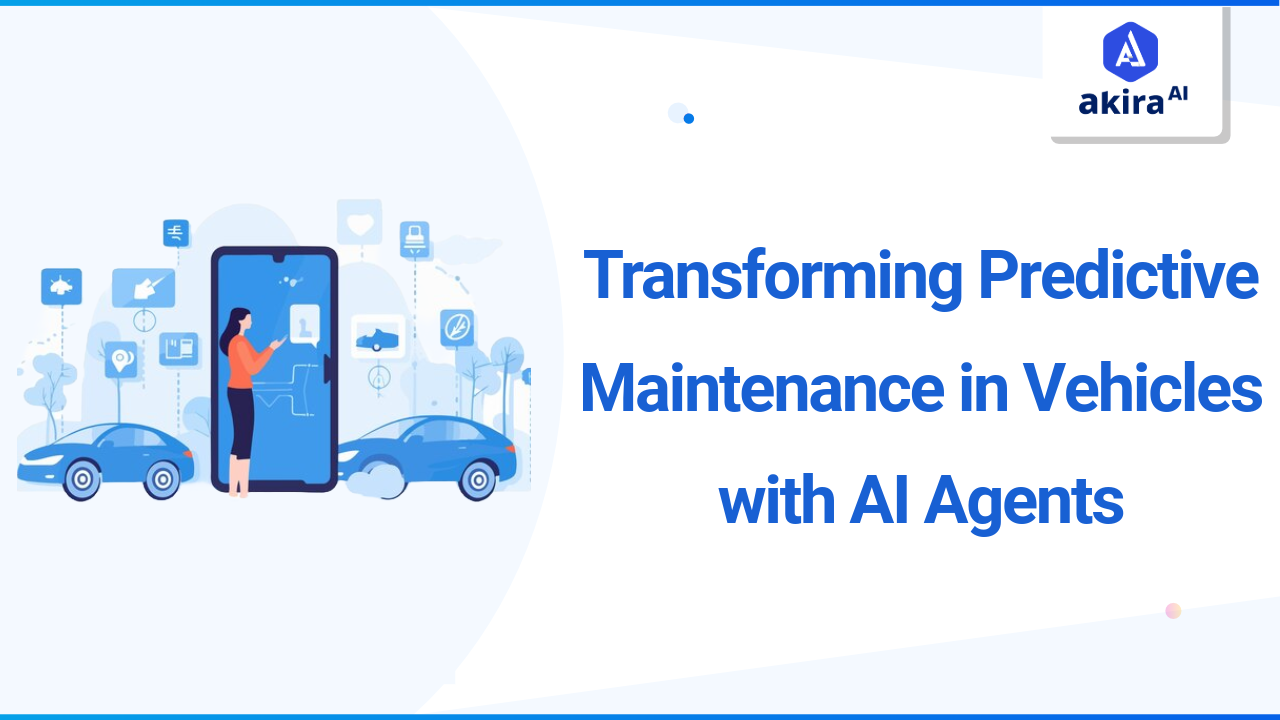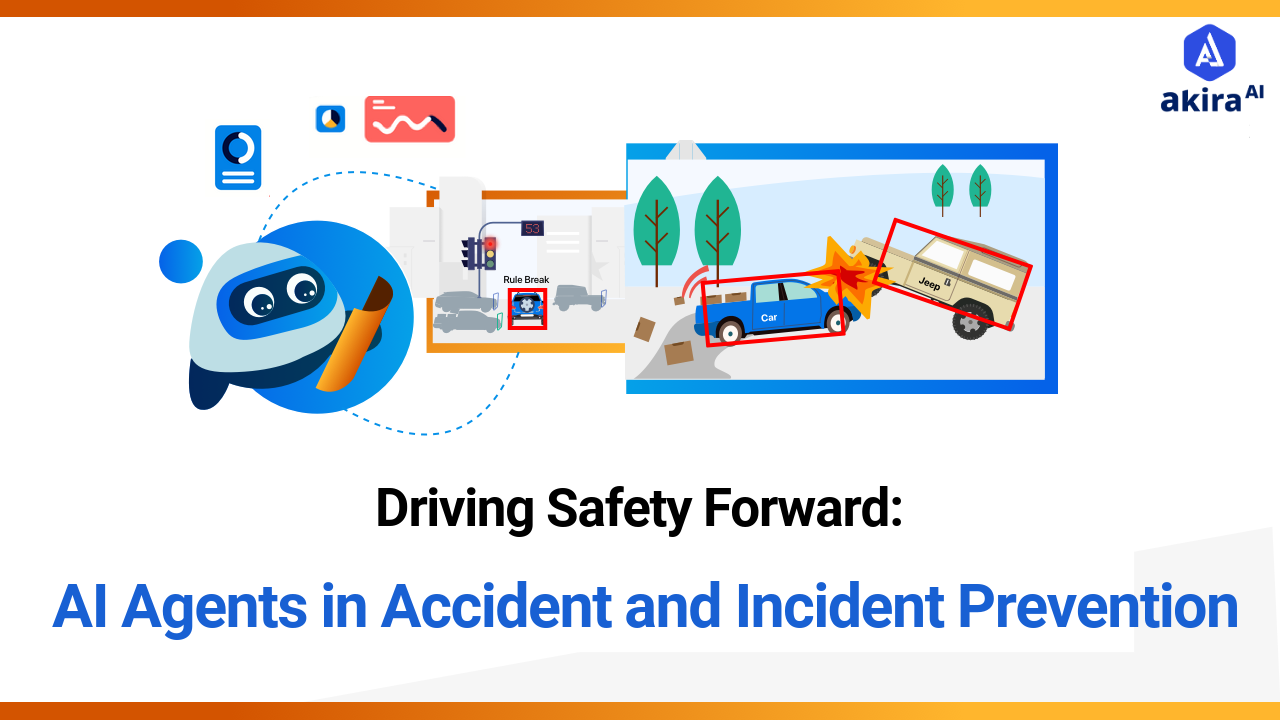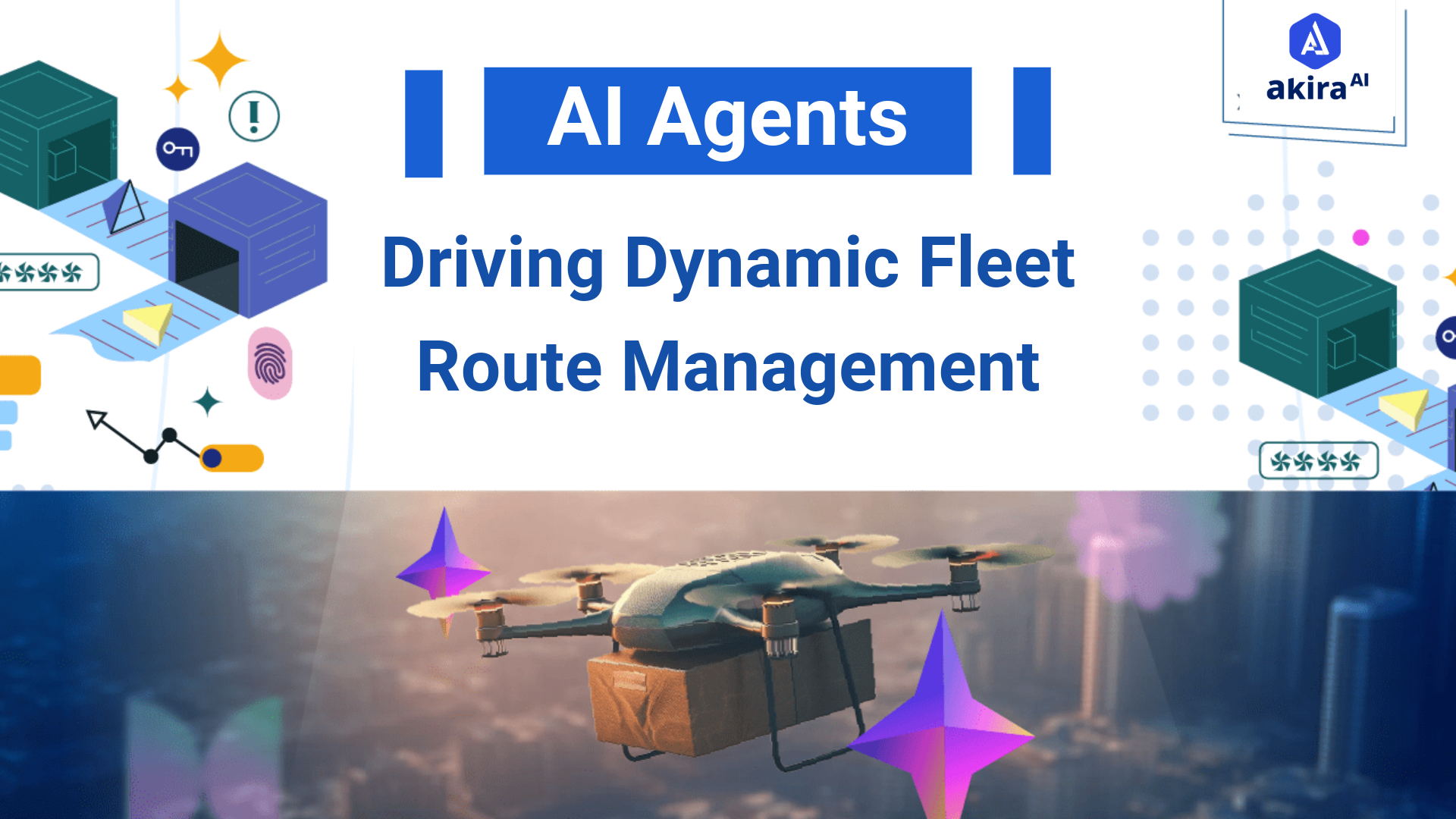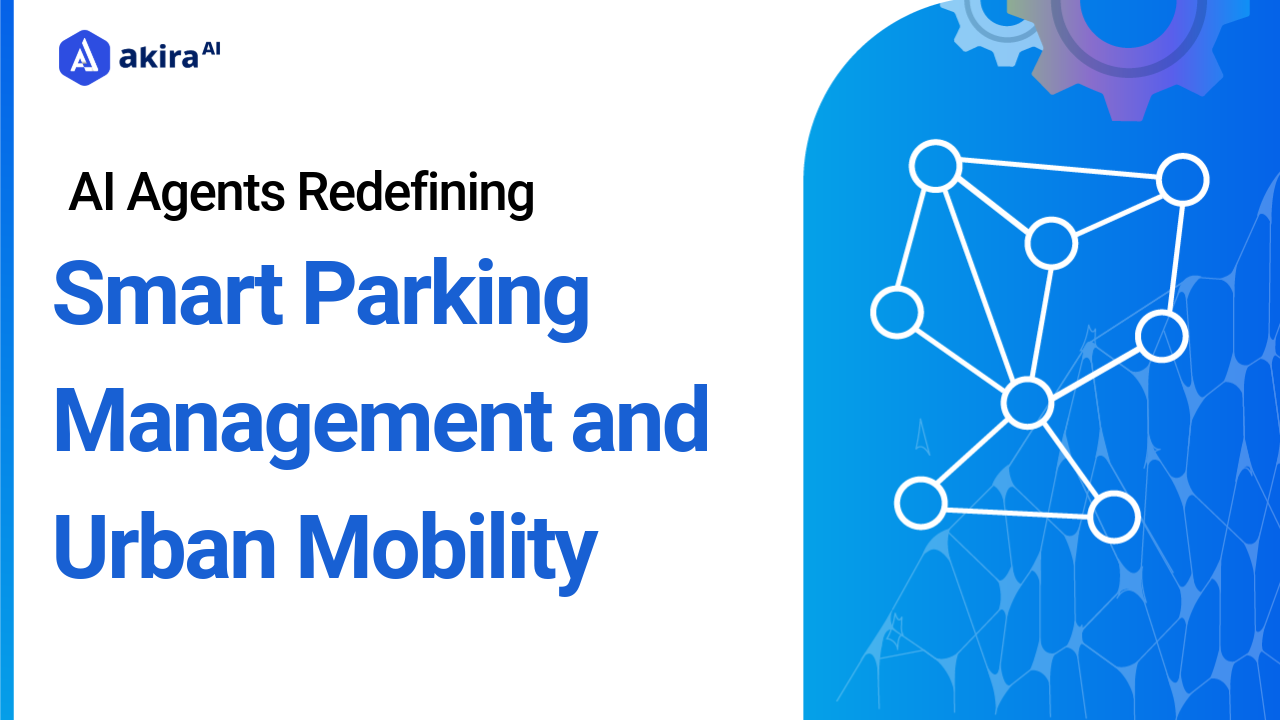Key Insights
Predictive vehicle management revolutionizes transportation by utilizing AI agents to analyze real-time data in order to allow companies to anticipate mechanical failure and efficiently schedule their service. This approach reduces the risks involved, allows for cost savings, and reduces downtime across various sectors, including logistics and aviation. By integrating advanced technologies, organizations can make better decisions in achieving reliability and efficiency, setting a new standard for vehicle maintenance.

Picture a world where every vehicle in a fleet operates seamlessly and mechanical issues are predicted before they disrupt service. This isn’t just a futuristic dream; it’s the reality of predictive vehicle maintenance in transportation. AI agents constantly analyze data from countless sensors, optimize maintenance schedules, and ensure that every vehicle remains roadworthy. As the demand for efficient logistics grows, AI technology is not only essential—it’s transformative, setting a new standard for safety, reliability, and operational excellence in the industry.
What is Vehicle Maintenance?
Vehicle maintenance, in general, is considered a comprehensive set of processes directed at safety and efficient transport. The tasks mentioned include check-ups, service, and repair work necessary to ensure the optimal state of vehicles in operation. Traditionally, maintenance practices were adhered to fixed schedules based either on mileage or time intervals. However, such approaches result in premature servicing and, often, increase costs unnecessarily or cause mechanical problems before things escalate. Such inefficiencies can affect the safety and reliability of vehicles adversely, highlighting the need for more proactive maintenance strategies for modern transportation systems.
A Brief Overview of Predictive Vehicle Maintenance in Transportation
Predictive vehicle maintenance represents a groundbreaking shift from traditional maintenance practices in the transportation sector. Advanced AI agents analyze data from vehicle sensors, maintenance logs, and other external conditions to predict when mechanical failures might occur. This way, the fleet manager gets ahead of problems before they get too big, hence the servicing of vehicles at the right time. Apart from the improvement of operational efficiency, predictive maintenance contributes to safety by avoiding the potential of breakdowns on the road. As transportation demands grow, incorporating AI in maintenance practices will be crucial for maintaining competitiveness and reliability in the industry.
Importance of Predictive Vehicle Maintenance
-
Data-Driven Decision Making: Predictive maintenance involves the analysis of data in real-time to make informed decisions rather than guesswork on when to schedule maintenance in an organization.
-
Increased Reliability: Autonomous cars should use the tools of predictive maintenance, as it will help them avoid failures that can significantly hamper the likelihood of consistent operation.
-
Regulatory Compliance: Regular checks ensure that cars are safe and compliant with standards that seek to curb pollution, hence protecting the car owners from hefty fines and also improving corporate responsibility.
-
Enhanced Customer Satisfaction: It minimizes delays and improves service reliability, so companies can meet the expectations of the customer, fostering loyalty and trust.
-
Sustainability: Proper maintenance practices minimize emissions and their effects on the environment as vehicles will always be in good condition.
Traditional vs. Agentic AI Vehicle Maintenance
|
Aspect |
Traditional Vehicle Maintenance |
Agentic AI-based Vehicle Maintenance |
|
Maintenance Schedule |
Time-based or mileage-based |
Data-driven, based on actual vehicle condition |
|
Predictive Capabilities |
Limited; reactive |
Advanced; anticipates failures |
|
Downtime |
Unexpected, potentially lengthy |
Reduced by effective scheduling |
|
Cost Implications |
High due to unplanned repairs |
Lower, due to the strategic maintenance plan |
|
Safety |
Dependent on regular checks |
Enhanced with timely interventions |
|
Vehicle Longevity |
Often shortened due to neglect |
Extended through targeted maintenance |
Agentic AI Workflow for Predictive Vehicle Maintenance
In a predictive vehicle maintenance ecosystem, AI agents collaborate as specialized experts, sharing insights and communicating seamlessly. This interconnected network adapts in real-time, enhancing overall efficiency and reliability in maintenance processes.
-
Data Collection Agent: This agent is responsible for continuously gathering real-time data from various vehicle sensors (including onboard diagnostics). It collects a wide range of performance metrics, such as engine temperature, fuel consumption, and tire pressure, along with diagnostic information that highlights the vehicle's overall health. This data serves as the foundation for effective maintenance strategies.
-
Data Analysis Agent: After data collection, this agent processes the information to identify trends and potential issues that may arise within the vehicle's systems. It enhances the accuracy of the analysis by employing ML algorithms to enable the identification of patterns that could indicate problems in the future.
-
Prediction Agent: Based on the insights of data analysis, this agent predicts when maintenance will be required in the future. It sets the right time when servicing different parts will be done so that maintenance will be done just before they tend to have trouble, and it will minimize the risk of unseen breakdowns.
-
Maintenance Scheduling Agent: This is a predictive insight-based agent that generates a complete maintenance schedule. It enables minimum vehicle downtime to achieve operational readiness and also provides minimum resource allocation in achieving the desired repairs and services.
-
Notification Agent: This agent is responsible for taking care of communication and thus sending timely alerts to fleet managers and operators regarding upcoming maintenance needs and any critical issues that need immediate response. Such a proactive approach ensures that maintenance tasks don’t get missed out.
-
Action Agent: Finally, this agent implements the established maintenance schedule, coordinating necessary repairs and ensuring that vehicles are serviced as required. By managing the execution of maintenance tasks, it plays a crucial role in maintaining fleet efficiency and reliability.
Applications of Predictive Vehicle Maintenance in Transportation
-
Fleet Management: Logistics companies can monitor fleet health continuously and schedule maintenance based on predictive insights. This approach improves operational efficiency, reduces costly downtime, and ensures vehicles are always in optimal condition for timely deliveries.
-
Public Transportation: In public transportation systems, such as buses and trains, predictive maintenance very much improves reliability. By anticipating maintenance needs, transit agencies can effectively reduce delays, boost passenger satisfaction, and build greater trust in public transport services.
-
Aviation: Airlines increasingly rely on predictive maintenance strategies to monitor aircraft health rigorously. This ensures compliance with strict safety regulations while optimizing operational efficiency, leading to fewer flight delays and enhanced safety for both passengers and crew members.
-
Shipping and Maritime: Predictive maintenance tools allow ships to efficiently prevent costly delays brought about by breakdowns at sea. Continuous vessel performance monitoring and anticipating appropriate maintenance needs help shipping companies deliver cargo on time and more safely to their destinations.
Operational Benefits of Predictive Vehicle Maintenance with AI Agents
The operational benefits of integrating AI agents into predictive maintenance are profound. These systems enable organizations to achieve:
-
Improved Efficiency: By significantly reducing downtime, vehicles can operate more frequently and efficiently, allowing companies to maximize production city and enhance overall service delivery.
-
Cost Savings: Performing maintenance only when necessary leads to substantial reductions in overall costs associated with repairs, part replacements, and unexpected breakdowns, ultimately improving profit margins.
-
Enhanced Safety: Timely interventions help mitigate risks associated with vehicle failures, greatly improving safety for both operators and passengers and fostering a safer transportation environment.
-
Data-Driven Decision Making: AI agents provide actionable insights that empower managers to make informed decisions regarding fleet management and maintenance strategies, optimizing operational performance and resource allocation.
Key Technologies Used in Predictive Vehicle Maintenance
-
Machine Learning: Advanced algorithms analyze both historical and real-time data to accurately predict vehicle failures and upcoming maintenance needs, thereby enabling proactive interventions.
-
IoT Sensors: These smart devices continuously collect valuable data on vehicle performance and overall condition, feeding essential information into predictive maintenance systems to enhance their effectiveness.
-
Data Analytics Platforms: Powerful tools process large volumes of data to identify critical patterns and trends in vehicle health, facilitating informed decision-making regarding maintenance strategies.
-
Cloud Computing: This technology provides a scalable platform for securely storing and processing data from multiple vehicles, facilitating real-time analytics and insights that drive efficient maintenance practices.
Future Trends in Predictive Vehicle Maintenance in Transportation
-
Advanced Algorithms: Future AI agents will employ highly sophisticated algorithms to significantly enhance prediction accuracy, enabling more timely and effective maintenance interventions that prevent potential issues before they arise.
-
Seamless Integration: This will increasingly integrate with emerging technologies, such as IoT devices and autonomous systems, creating a more connected and responsive maintenance framework that enhances overall operational efficiency.
-
Customized Solutions: AI agents will deliver tailored maintenance strategies based on specific operational data, ensuring optimized performance for various vehicle types and diverse usage scenarios in different environments.
Conclusion: AI Agents for Predictive Maintenance
AI agent-driven capabilities for innovative vehicle maintenance in transportation exceed traditional methods of predictive maintenance. By adopting an intelligent and proactive approach, organizations will achieve efficiency, safety, and cost-effectiveness levels in fleet management that previously would have been thought impossible. As the transportation industry continues to integrate cutting-edge technological advancements, the influence and utility of AI agents in predictive maintenance will undoubtedly expand. The evolution heralds an era of smarter, more resilient transportation that herein improves operational performance, and beyond, which is good for the industry.
Read More About Payment Processing with AI Agents
Discover More Freight Load Optimization with Agentic AI


